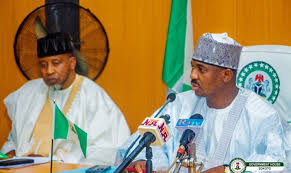The Sokoto State Government has approved the sum of ₦69 billion for major developmental projects across the state. This was made known after the 4th Executive Council Meeting held on Wednesday, chaired by Governor Ahmed Aliyu at the Government House, Sokoto.
The Commissioner for Information, Hon. Sambo Bello Danchadi, disclosed the details while addressing journalists shortly after the meeting. He said the approval covers key sectors such as housing, agriculture, and public infrastructure, which are all part of the administration’s plan to fast-track economic growth and improve living standards across Sokoto State.
Leading the list of the approved projects is the acquisition of 500 luxury housing units located within the proposed Sokoto City. These houses, initially constructed by the Federal Government, will be purchased by the state at a total cost of ₦44.7 billion. The Commissioner explained that this initiative is part of Governor Ahmed Aliyu’s broader strategy to tackle the housing deficit in the state, especially in urban areas with fast-rising population.
“This is a bold step by His Excellency to address the challenge of housing, particularly in the urban centres,” Hon. Danchadi stated. “The project is designed to accommodate a growing number of civil servants, professionals, and middle-income earners who are in urgent need of decent housing.”
Also approved at the meeting was the procurement of 250 tractors and other related farming equipment to boost agriculture in the state. The agricultural intervention, valued at ₦22.1 billion, is aimed at improving food production and increasing access to modern farm tools for rural farmers. The funding will be split between the Ministry for Local Government and Chieftaincy Affairs, which will bear 60% of the cost, and the Ministry of Agriculture, which will cover the remaining 40%.
The Commissioner for Agriculture, Alhaji Tukur Alkali, who also spoke at the briefing, described the move as timely and essential for improving food security and job creation. According to him, the tractors will be provided to local farmers at subsidized rates to encourage mechanized farming and raise productivity.
“This is a critical intervention that will go a long way in helping our farmers at the grassroots. It is part of our plan to make agriculture more attractive, profitable, and modern,” Alhaji Alkali noted.
In addition to housing and agriculture, the Executive Council also gave approval for the release of over ₦2 billion for key infrastructural developments to enhance public safety and protect vital state assets.
Among these are the construction of a pedestrian bridge along Birnin Kebbi Road, near Yakubu Muazu Model Primary School. The project is aimed at ensuring the safety of schoolchildren and other road users who frequently cross the busy highway. The state government also approved the construction of perimeter fences around four water treatment plants located in Gagi, Mana, Asare, Old Airport, and Tamaje. The fencing is meant to secure the facilities and prevent vandalism or contamination.
Speaking further, the Commissioner for Local Government and Chieftaincy Affairs, Hon. Ibrahim Dadi Adare, and the Commissioner for Lands and Housing, Barr. Nasiru Dantsoho, affirmed the government’s readiness to implement the approved projects without delay. They stressed that these developments would not only improve the standard of living in the state but also create job opportunities and support sustainable growth.
“These projects are in line with the governor’s vision of building a better Sokoto that works for everyone. We are determined to deliver on all promises made to the people,” said Barr. Dantsoho.
The approvals come as part of Governor Ahmed Aliyu’s broader economic agenda to ensure inclusive development and infrastructural advancement across the 23 local government areas of Sokoto State. The government has promised to ensure transparency and effective project monitoring to deliver quality results.
Residents and stakeholders have expressed hope that these investments will positively impact the lives of ordinary citizens and contribute to the overall progress of the state.
